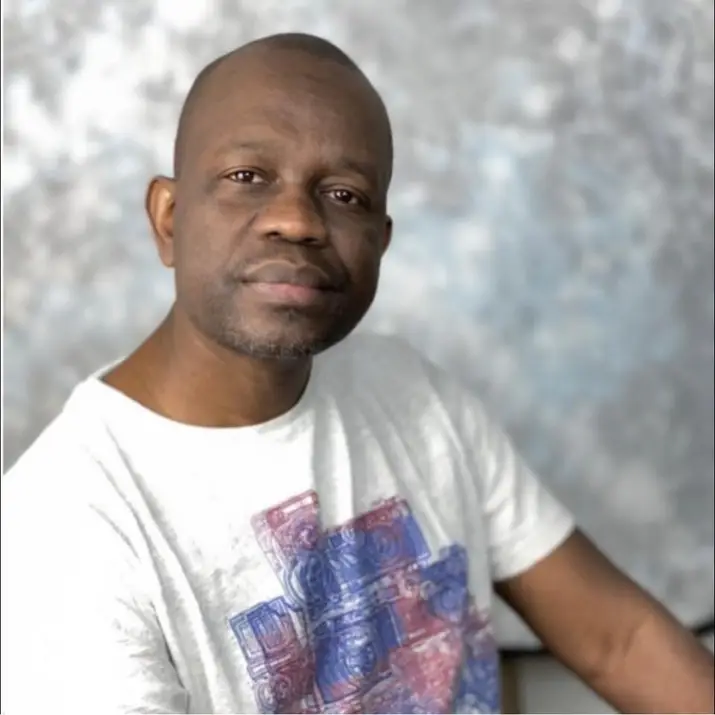
Harare Voices and Beyond: A story of the predator, the prey and everyone else in between
“‘Go home white man!’ I hear that everywhere. Of course, I am white. Of course, you are black…. But can’t we see that we are trapped together by a sad history. Can’t it be negotiated amicably now that we agree that we fought each other for too long? Can’t a dignified way be found?” This powerful line from protagonist Julian pretty much sums up a key thematic strand in Harare Voices and Beyond: race relations in post-independence Zimbabwe. Released on February 27 this year, Chatora’s third novel gets to the heart of the problems of a country where many are separated by color. Formerly at arms, two races share a history that has been hurtful to many, if not almost all.
When I was twelve, I saw the movie, Sarafina, morph from a likable film with Whoopi Goldberg in it, to uncomfortable truth about the world I lived in. As I came of age in America, I did not need a VHS movie, however singular, to show me the grim reality of racial discrimination. While Harare Voices and Beyond is not about South Africa or the U.S, it illustrates much of what happens when race separates people.
In the late 19th century, the British settled into the area now known as Zimbabwe. The white minority ruled Rhodesia until 1980 when they lost power to African liberation movements. The characters in Harare Voices and Beyond, both black and white, show what living in the country is for them in the new epoch. A line that sticks out is, “I sometimes think that 1980 failed to bring together black and white.” As the book continues, readers see that the line is really more of an understatement.
Chatora presents Zimbabwe using several characters who are living through crisis. Throughout the book, the chapters switch back and forth between these characters. It could be Jim, the white man who one night loses his purchased and documented property to purported “war vets”, in reality young men pressed into serving “the party’s national service.” They work under the racist stimulus of Mugabe’s rhetoric: “We were told to strike fear and terror in the hearts of our enemies, the white men, so they return to themselves, their forefather’s land.”

In the end, these young men, who have brutalized landowners helping leaders take back the land, learn all they had been told to be subterfuge, to protect the leaders from their own issues and interests. And all they had been instructed in the name of rank and country will now affect them for the rest of their lives, turning them to the same drug escape the fallen white man finds himself in. Ironically, both classes have become victims who will end up with nothing.
Julian a white Zimbabwean, who becomes one of the addicts, turns to substance abuse after his family loses their Mazowe family home, stolen under the guise of political retribution. His hopes for a family, wife, fatherhood, any claim to clean living, are dashed. Dejected and despondent, he remarks: “We white people in Africa have to repay what history had offered us. What can I say? What can I see?” And herein lies the problem, how do you repay for the past? Do you give up the life you have based on what those who previously lived did to others, with the same color skin, did before you? How can you pay for the actions of others, really? Is it fair to ask anyone to do that?’’
Harare Voices and Beyond is an enlightened piece of literature, significantly beyond what we are currently reading about race relations. Finally, a book comes in which all points of view are shared, where the question is presented, “What do we do to rehabilitate race relations?”
There is nothing to it but to escape onto the streets of Harare and whatever you get there. And this becomes the reality for almost all the men in this book. For many, it even means unwanted relations (some are paid for same sex acts they would rather not perform) mostly with drugs but not so much controlled by the substance as they are by the people who deliver them. These are the men with power, the few who seem to be getting everything they want, by taking everything from the backs of others.
To take advantage of a situation like this, so precarious, so unanswerable, is demonic. But then no one seems to know what to do, there are people who find power and exert this control to take everything for themselves, rather than look for any kind of real solution. They cry out, “Revolution” (or whatever gets the people riled up), all the while stuffing their pockets, these few men who have found might, for a moment.
When it comes to drug addiction, a problem central in the book with, I went back and forth with my thoughts. While it is hard to listen to an addict rationalize their behavior – there are always falsehoods in their statements – I realized further into the book, this would not always be the case. All the while we call it a “disease” but want to villainize the addict, just never looking in the mirror ourselves. Harare Voices and Beyond‘s politics of empathy concern people who start regular and lose it all.
While one of the characters, murder victim Julian, blames his addiction on many things outside himself, the realities of his life are very hard to live with. And you can’t help but empathize when you get to a point in the book where he has an argument with his brother Rhys (later charged with his murder, along with his mother Doris), and we learn that Rhys is part of a sex ring. The worst thing about his involvement in this is that, as a part of this ring, he is not being hurt himself in any way, actually, taking advantage and hurting others for his own benefit.
Harare Voices and Beyond gets me to a point where I say to myself, “No one has the right to really judge another’s actions.”Because, when it comes right down to it, while Julian easily lends himself to judgement for hurting himself, his brother, still holding on to his dignity, is hurting others for his own profit. When you judge the two, it turns out not to be what it seemed.
In taking the land back to reverse the ill gains of the white settlers, the new elite does not help the whole population, but wealth is stolen for a few individuals. The shouts for the white man to go home, as Chatora captures them, have an ironic dimension. Some families have been around more than a hundred years now and have nowhere else they can claim. The country is their home too. It is never casual how people define the word “home” when they do not want someone to be there.
What happens in Zimbabwe is essentially stripping one race of control and putting in a detached elite who makes no real change, just more damage. The whole aspect of change the author presents here is a facade where those who can, now take what they want, and do what they want, different people just walking on the backs of others.
What happens in Zimbabwe is essentially stripping one race of control and putting in a detached elite who makes no real change, just more damage
Harare Voices and Beyond is an enlightened piece of literature, significantly beyond what we are currently reading about race relations. Finally, a book comes in which all points of view are shared, where the question is presented, “What do we do to rehabilitate race relations?”
What is the solution to this problem of race relations? I don’t know. And, we don’t see the solution in the book. And, as of yet, I don’t think there is one. But we all must agree that a solution will not come in violence and anger for the things of the past. While I am a sour person when it comes to forgiveness, I see it as the only solution here. That the past must be forgiven, that the new black elite has to be more able and more broadly inclined than the self-interested white minority for the good of the whole population.
Harare Voices and Beyond is a must read, if only for the knowledge gained. You don’t have to like it and even though I did, I have realized it has ignited polarized views from readers depending on how individuals view the diverse subjects Chatora tackles in the book. But that is testament to a stellar contribution for a book to generate global debate, conversation and discussion.
Jeneane Vanderhoof is an American writer, reviewer and book blogger. She occasionally publishes with Scene and maintains a column, Tea Time With A Good Book, in Cleveland, OH.





